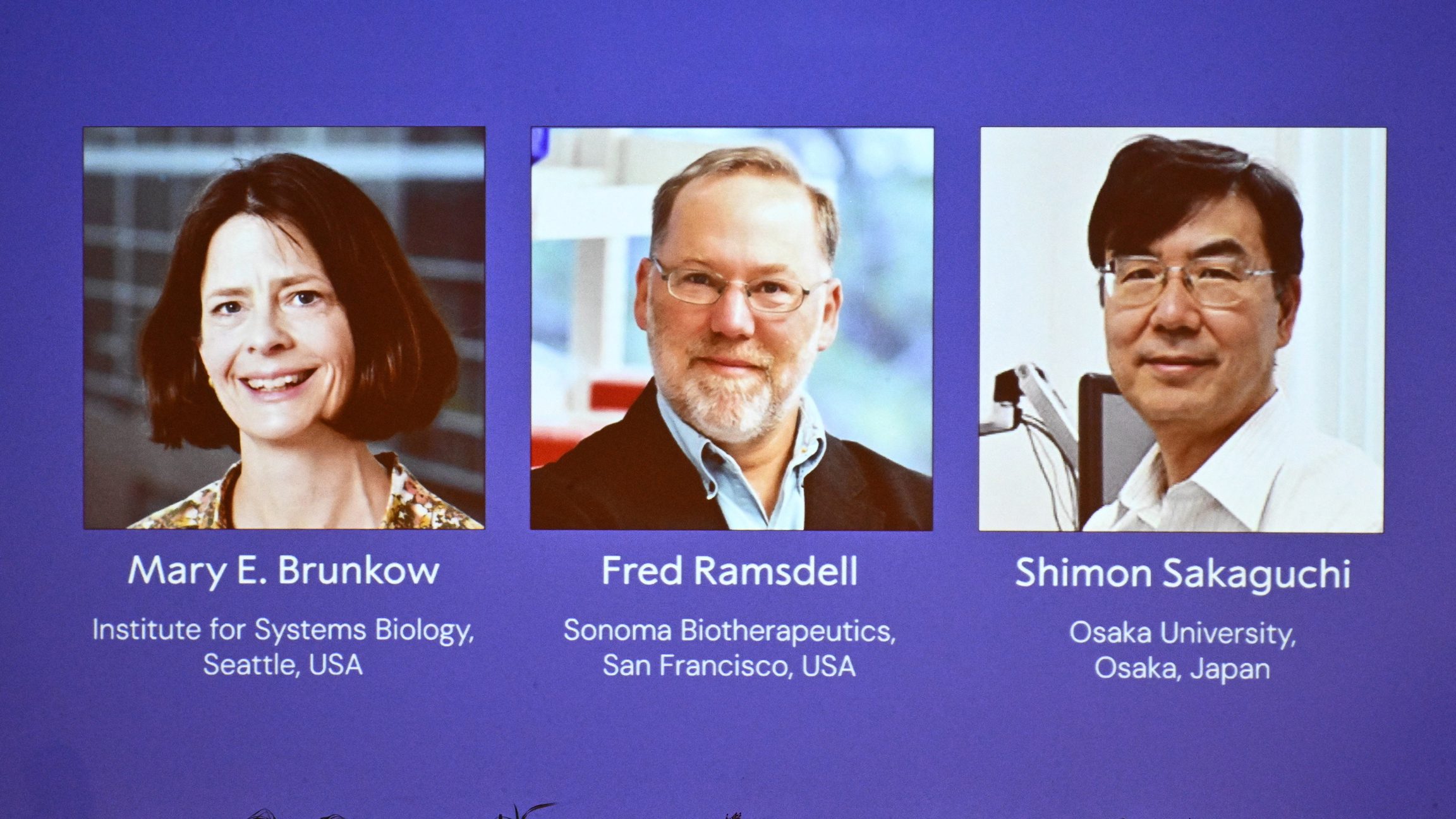The 2025 Nobel Prize in Physiology or Medicine has gone to Mary Brunkow, Fred Ramsdell and Shimon Sakaguchi for their groundbreaking discoveries on peripheral immune tolerance, the Nobel Committee announced. [1], [2]
Their work identified regulatory T-cells — known as the immune system’s “security guards” — which patrol the body and neutralize other immune cells that mistakenly attack it.
“This year’s award focuses on how we regulate our immune system, so that we can fight every possible microbe while at the same time avoiding autoimmune diseases,” the Committee said.
This year’s award is the 116th Nobel Prize in Physiology or Medicine, with only 13 of them ever awarded to women.
Their findings have opened the way to developing new treatments for both autoimmune diseases and cancer. In cancer, regulatory T-cells can block the body from attacking tumors, so research is focusing on reducing their numbers. In autoimmune diseases, by contrast, clinical trials are exploring how to strengthen these cells so that the body stops attacking itself. A similar approach may also prove effective in reducing the risk of organ transplant rejection.
“Their discoveries were decisive in understanding how the immune system works and why not everyone develops severe autoimmune diseases,” said Olle Kämpe, chair of the Nobel Committee.
The three laureates will share 11 million Swedish kronor, worth about €1 million.
 What is fyi.news?
What is fyi.news?







